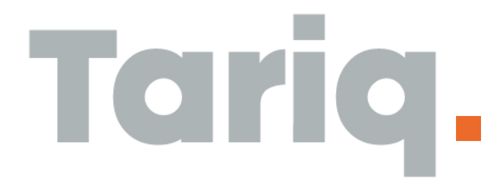As we approach the final quarter of the year, it’s the perfect time to reflect on your personal brand. In 2025, your ability to stand out and showcase your expertise will be critical in unlocking new opportunities and meaningful connections.
This year has flown by, and whatever plans you have in place will require you to build your profile and showcase your expertise to the world. However, building a personal brand without a clear vision, alignment with your values, and a commitment to persevere can lead to challenges.
Here are some common mistakes I’ve personally made, along with ones I’ve observed from many graduates and young professionals when crafting their personal brands, and tips on how to avoid them.
Join the £1M Visibility Blueprint
Weekly insights from my £1M personal brand journey. Strategy, visibility systems and earned media plays you can use now.
1) Letting Your Online Presence Go Stale
In the digital age, your online presence is often the first impression you make. Neglecting your social media profiles, failing to update your LinkedIn, or ignoring personal websites can make you appear unprofessional or disinterested. An outdated or inactive online presence can give potential employers or clients the impression that you’re not actively engaged in your field.
Solution: Regularly update your profiles with new achievements, skills, and content. Engage with your target audience by sharing relevant articles, commenting on industry news, and participating in discussions. Use your online platforms to highlight your expertise and enthusiasm for your field. By maintaining an active presence, you’ll set yourself up for success as you move into 2025.
2) Overemphasising Self-Promotion
While promoting your achievements and skills is important, overemphasising self-promotion can come off as arrogant or self-centred. Constantly talking about yourself, your accomplishments, and your opinions without engaging with others can alienate your audience and harm your reputation.
I once worked with a client who only posted about their achievements, and while their knowledge was impressive, their engagement was minimal until they started actively promoting the success of others too.
Solution: Strike a balance between self-promotion and engagement. Share your achievements, but also highlight the accomplishments of others, share valuable resources, and offer your insights on industry trends.
Engage in meaningful conversations and be genuinely interested in what others have to say. Remember, a strong personal brand is about more than self-promotion—it’s about building a reputation of value, which will benefit you long-term.
3) Ignoring the Importance of Networking
Building a personal brand isn’t just about online presence, it’s also about real-life interactions. Ignoring the importance of networking can limit your growth and opportunities. Many young professionals make the mistake of thinking that their skills alone will propel them forward, forgetting that connections are often just as important.
Solution: Actively seek networking opportunities. Attend industry events, join professional organisations, and participate in community activities. Networking isn’t just about what others can do for you; it’s also about what you can offer them. Be genuine, helpful, and open to forming mutually beneficial relationships.
4) Not Defining Your Unique Value Proposition (UVP)
Your unique value proposition sets you apart from others in your field. Many young professionals fail to define their UVP, which can make them blend in with the crowd. Without a clear UVP, it’s challenging for potential employers to understand why they should choose you over someone else.
In my case, we could argue that the personal branding space is incredibly saturated. However, my UVP is rooted in my career experience in PR, which I use to teach graduates and young professionals how to amplify their personal brands. These PR fundamentals align perfectly with reputation management, but I’ve refined this expertise to focus on a specific niche.
Solution: Take time to reflect on your strengths, experiences, and passions. What do you do better than anyone else? What unique perspective do you bring to the table? Once you have a clear UVP, communicate it consistently across all your branding efforts. Your UVP should be evident in your CV, social media profiles, and in the way you present yourself in person.
5) Focusing Solely on Professional Achievements
While professional achievements are a significant component of your personal brand, focusing solely on them can make you appear one-dimensional. People are drawn to those who are well-rounded and have a range of interests and experiences.
Solution: Don’t be afraid to showcase your personality, hobbies, and interests outside of work. Share your volunteer work, hobbies, or personal projects. This not only makes you more relatable but also demonstrates that you’re a well-rounded individual with a diverse skill set and a rich life outside of work.
6) Failing to Adapt and Evolve
The professional landscape is constantly evolving, and your personal brand should evolve with it. Sticking rigidly to a brand that no longer aligns with your goals or industry trends can make you seem out of touch.
For example, when I was a music blogger, I spent most of my time writing articles without diversifying my content. However, not everyone prefers to read—some prefer videos or quick 60-second tutorials. By failing to adapt, I missed opportunities to engage a wider audience.
Solution: Be open to change and willing to adapt your brand as needed. Regularly assess your goals, industry trends, and audience needs. According to TikTok’s Head of Product Marketing – Europe, Kris Boger, Gen Z typically have an attention span of just 8 seconds; a few seconds shorter than millennials, who come in at approximately 12 seconds.
Update your skills and knowledge to stay relevant, and don’t be afraid to pivot your brand if necessary. A flexible, evolving brand is more likely to remain relevant and resonate with your audience.
7) Overlooking the Power of Storytelling
Personal branding is more than a list of qualifications and experiences, it’s about telling your story. Many young professionals overlook the power of storytelling in their branding efforts. Simply listing facts and achievements can make your brand feel dry and impersonal.
Solution: Use storytelling to make your brand more compelling and memorable. Share stories that highlight your journey, challenges you’ve overcome, and lessons you’ve learned. Authentic stories resonate with people and make your brand more relatable and human.
Moving Forward…
Personal branding is a powerful tool, but it requires careful planning and execution. By avoiding these common pitfalls and focusing on consistency, engagement, networking, and authenticity, you can build a strong personal brand that sets you apart in your field.
Remember, your personal brand reflects who you are. Make sure it’s a true representation of your unique journey and talents, and one you’re proud to carry into the future.
See you next week!






[…] the ban has exposed the vulnerability of relying heavily on a single platform and not catering to your overall online presence. When you place all your eggs in one basket, you’re at the mercy of that platform’s […]